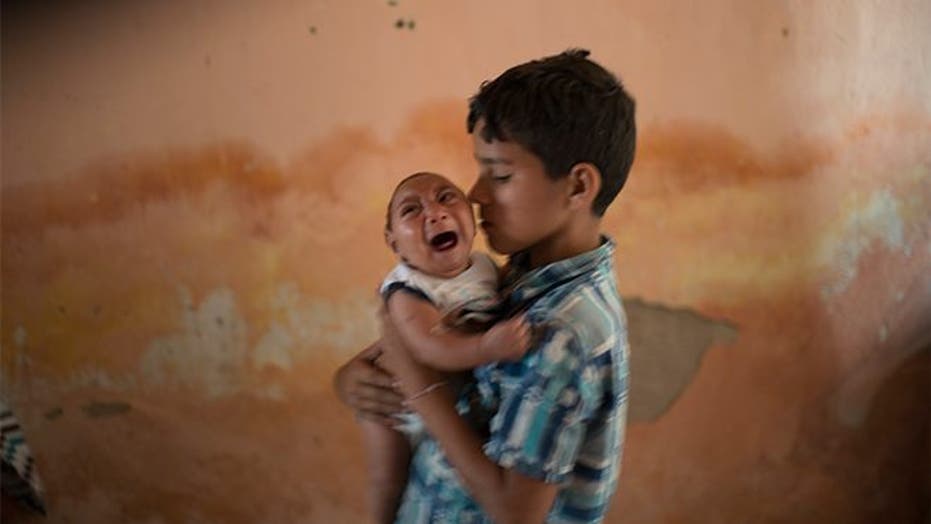A set of twins in Brazil has doctors stumped as one was born with microcephaly from the Zika virus, and the other was not.
Jaqueline Silva de Oliveira, mother of 6-month-old twins, Lucas and Laura, found out about three months after giving birth that she had been infected by the Zika virus while pregnant. She only developed a rash, so she thought it was allergies.
Thinking then that it might be dengue, Oliveira told CNN that the doctor recommended that she go to the hospital, but it was very far from her home in Santos, Brazil.
"I didn't go because I was already feeling really bad," she said.
Laura was born with microcephaly – which has been determined is caused by Zika – while her brother did not. Aside from the physical deformities between the two children, their parents can tell just how the disease affects them.
Lucas, they said, squirms and yells when he is hungry and demanding milk. Laura, on the other hand, seems to struggle when she wants to cry, she cannot breastfeed and can barely hold up her small head.
"We try to live in the moment with her," de Oliveira told CNN of her daughter. "Because we worry; what if she needs a wheelchair? How will she move around in this house? It's really complicated to think about the future."
According to CNN, researchers are studying Lucas and Laura along with another five sets of twins in Brazil to determine why one developed microcephaly and the other did not.
Geneticist Mayana Zatz of the University of Sao Paulo said the answer could be in their genes and hopes that the twins cases help in better understand this devastating airborne disease.
"If we can pinpoint what are the variants, what are the genes involved, we could have a genetic test that could test on others that are pregnant to say if they are at risk," Zatz said.
Peggy Honein of the U.S. Centers for Disease Control and Prevention said that studying twins would allow researchers to isolate factors from genetic conditions that could be the link between Zika and microcephaly.
"Certainly, it is consistent that not every woman infected with Zika will lead to a newborn with microcephaly," she said.
A recent study in Rio de Janeiro found that nearly 30 percent of pregnant women infected with Zika had ultrasounds showing abnormalities, CNN reported.
However, Honein pointed out that in another study, only 1 percent of babies born to Zika-infected mothers showed complications.
"Zika virus poses a unique challenge in terms of the critical need to protect pregnant women," she said.

